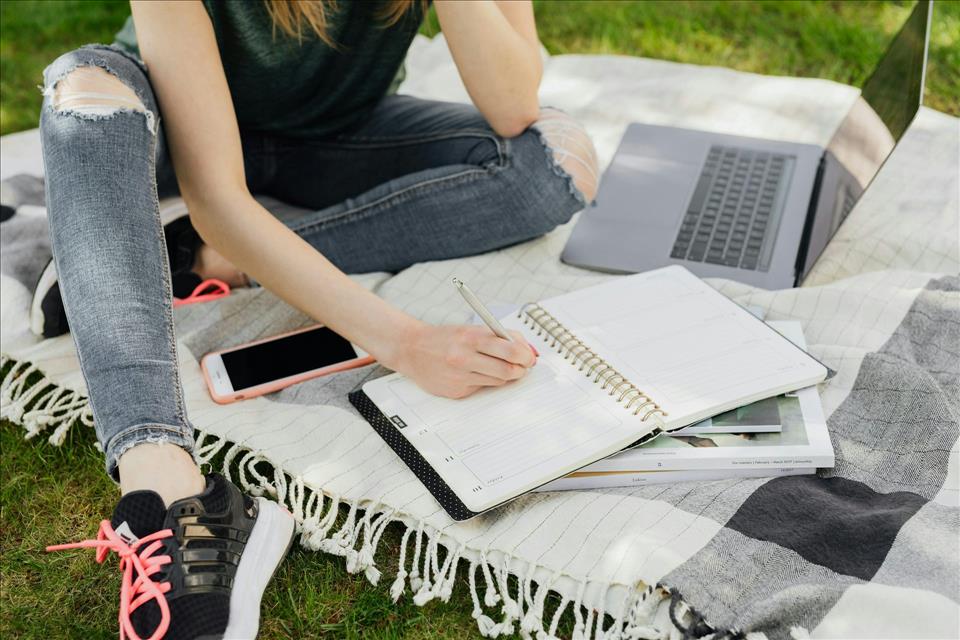
Take Breaks, Research Your Options And Ditch Your Phone: How To Take Care Of Yourself During Year 12
It is both the culmination of formal learning and the gateway to what lies beyond. It is an end and beginning all in one.
Unsurprisingly, many Year 12s find it to be a demanding and stressful time. So, what mindsets and habits can you set up now to give yourself the stamina and support you need for the year ahead?
Put your exams in contextThe academic focus of Year 12 is an obvious source of stress for many students. While this is natural, there are many things you can do to put all the assignments and assessments in context.
Remember Year 12 should always be framed as preparing students for life after school. It is about working out where you want to go – be it further study or work – and then keeping open as many possible pathways to get you there.
While students might have a particular career goal in mind, there are always many options and they don't all hinge entirely on your ATAR.
Know what the entrance requirements are for your preferred option (such as getting into a particular course at university), but also research other pathways if you don't get your desired grades or preferences.
There are always alternative ways into your dream course or field of study. A TAFE diploma can unlock entrance to a bachelor's degree and a bachelor of arts can open entry into postgraduate law. Many universities also offer early entry schemes that don't rely on Year 12 grades or ATAR rankings.
Most of all, try to avoid thinking there is only one right path. It is about finding the right path for you at this point in time.
Remember your 'success' this year does not hinge on your ATAR. Karolina Grabowska/Pexels , CC BY
Read more: 'Practically perfect': why the media's focus on 'top' Year 12 students needs to change
Don't study all the timeWhile study is going to play a large role this year, it is important to make time for your mental, physical and emotional wellbeing. This will help give you stamina to face your study workload and the other demands of the year.
For example, playing sport or making art can help to enhance cognition, reduce stress and improve self-confidence.
Work out a schedule that allows time for study, rest and the things you enjoy. This could also include catch-ups with friends, walking your dog or cooking dinner with your family.
Remember that it is recommended teenagers get 8-10 hours of sleep per day. If you don't get enough sleep, it makes it harder to think, learn and regulate your emotions.
And while it might be unpopular, it is also important to avoid excessive screen time . This can also help your sleep and decrease stress.
Create habits that can make you less reactive to technology. For example, put your phone on“do not disturb” mode when you are studying, and try to avoid screens at least an hour before bed.
Time with a furry friend can help as you manage the demands of Year 12. Samson Katt/ Pexels , CC BY
Read more: Avoid cramming and don't just highlight bits of text: how to help your memory when preparing for exams
You're not aloneIf you're feeling overwhelmed, don't be afraid to ask for help .
This may be from teachers or school guidance officers, or it may be from parents, older siblings or friends. Reach out to trusted people early if you are worried or anxious, and support your fellow Year 12s to do the same.
Look for signs in yourself and others that could suggest at-risk mental health .
This might be difficulty concentrating, inability to sleep or significant changes in mood and behaviour. Seeking help early can help avoid these issues escalating.
If this article has raised issues for you, or if you're concerned about someone you know, call Lifeline on 13 11 14 or Kids Helpline on 1800 55 1800.

Legal Disclaimer:
MENAFN provides the
information “as is” without warranty of any kind. We do not accept
any responsibility or liability for the accuracy, content, images,
videos, licenses, completeness, legality, or reliability of the information
contained in this article. If you have any complaints or copyright
issues related to this article, kindly contact the provider above.


















Comments
No comment